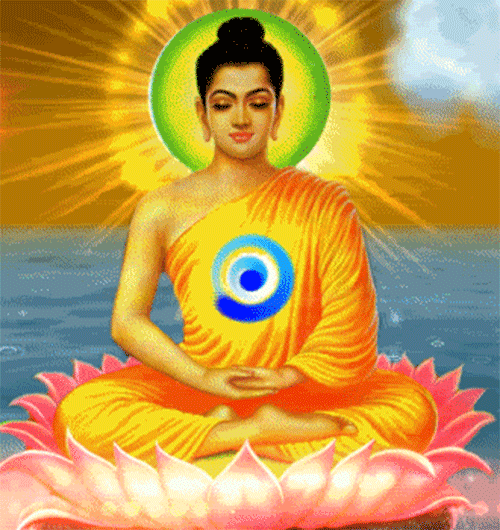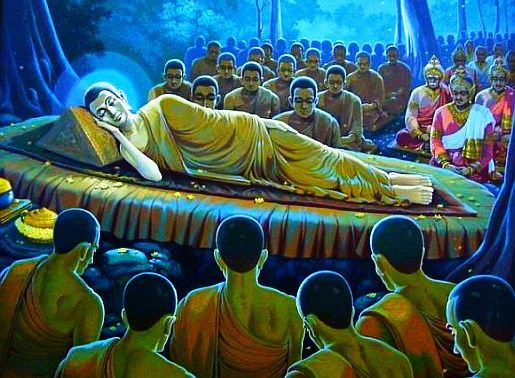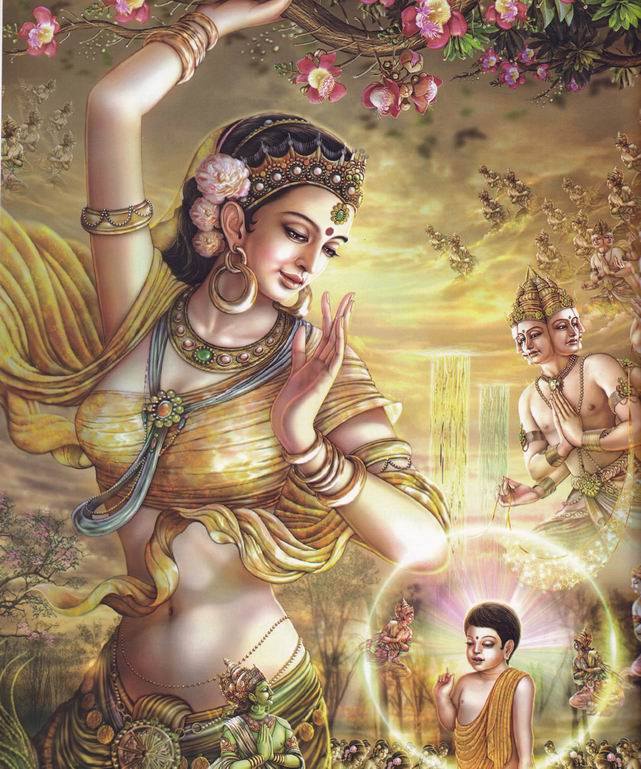
Wisdom and Compassion
Question: I often hear Buddhists talk about wisdom and compassion. What do these two terms mean?
Answer: Some religions believe that compassion or love (the two are very similar) is the most important spiritual quality but they fail to develop any wisdom. The result is that you end up being a good-hearted fool, a very kind person but with little or no understanding. Other systems of thought, like science, believe that wisdom can best be developed when all emotions, including compassion, are kept out of the way. The outcome of this is that science has tended to become preoccupied with results and has forgotten that science is to serve man not to control and dominate him. How, otherwise could scientists have lent their skills to develop the nuclear bomb, germ warfare, and the like. Religion has always seen reason and wisdom as the enemy of emotions like love and faith. Science has always seen emotions like love and faith as being enemies of reason and objectivity. And of course, as science progresses, religion declines. Buddhism, on the other hand, teaches that to be a truly balanced and complete individual, you must develop both wisdom and compassion. And because it is not dogmatic but based on experience, Buddhism has nothing to fear from science.
Question: So what, according to Buddhism, is wisdom?
Answer: The highest wisdom is seeing that in reality all phenomena are incomplete, impermanent, and not self. This understanding is totally freeing and leads to the great security and happiness which is called Nirvana. However, the Buddha doesn’t speak too much about this level of wisdom. It is not wisdom if we simply believe what we are told. True wisdom is to directly see and understand for ourselves. At this level then, wisdom is to keep an open mind rather than being closed-minded, listening to other points of view rather than being bigoted; to carefully examine facts that contradict our beliefs, rather than burying our heads in the sand; to be objective rather than prejudiced and partisan; to take time about forming our opinions and beliefs rather than just accepting the first or most emotional thing that is offered to us; and to always be ready to change our beliefs when facts that contradict them are presented to us. A person who does this is certainly wise and is certain to eventually arrive at true understanding. The path of just believing what you are told is easy. The Buddhist path requires courage, patience, flexibility and intelligence.
Question: I think few people could do this. So what is the point of Buddhism if only a few can practice it?
Answer: It is true that not everyone is ready for Buddhism yet. But to say that therefore we should teach a religion that is false but easily understandable just so that everyone can practice it is ridiculous. Buddhism aims at the truth and if not everyone has the capacity to understand it yet, they perhaps will be ready for it in their next life. However, there are many who, with just the right words or encouragement, are able to increase their understanding. And it is for this reason that Buddhists gently and quietly strive to share the insights of Buddhism with others. The Buddha taught us out of compassion and we teach others out of compassion.
Question: So we arrive at compassion. What, according to Buddhism, is compassion?
Answer: Just as wisdom covers the intellectual or comprehending side of our nature, compassion covers the emotional or feeling side of our nature. Like wisdom, compassion is a uniquely human quality. Compassion is made up of two words, ‘co’ meaning together and ‘passion’ meaning a strong feeling. And this is what compassion is. When we see someone in distress and we feel their pain as if it were our own, and strive to eliminate or lessen their pain, then this is compassion. So all the best in human beings, all the Buddha-like qualities like sharing, readiness to give comfort, sympathy, concern and caring – all are manifestations of compassion. You will notice also that in the compassionate person, care and love towards others has its origins in care and love for oneself. We can really understand others when we really understand ourselves. We will know what’s best for others when we know what’s best for ourselves. We can feel for others when we feel for ourselves. So in Buddhism, one’s own spiritual development blossoms quite naturally into concern for the welfare of others. The Buddha’s life illustrates this very well. He spent six years struggling for his own welfare, after which, he was able to be of benefit to the whole of mankind.
Question: So you are saying that we are best able to help others after we have helped ourselves. Isn’t that a bit selfish?
Answer: We usually see altruism, concern for others before oneself, as being the opposite of selfishness, concern for oneself before others. Buddhism does not see it as either one or the other but rather as a blending of the two. Genuine self-concern will gradually mature into concern for others as one sees that others are really the same as oneself. This is genuine compassion and it is the most beautiful jewel in the crown of the Buddha’s teaching.
Source: BuddhaNet
Link to this article



![From left: Prince Siddhartha and his cousin [Buddha’s enemy], Devadatta.](http://ariyamagga.net/wp-content/uploads/2015/05/Buddha-and-Devadatta.jpg)















